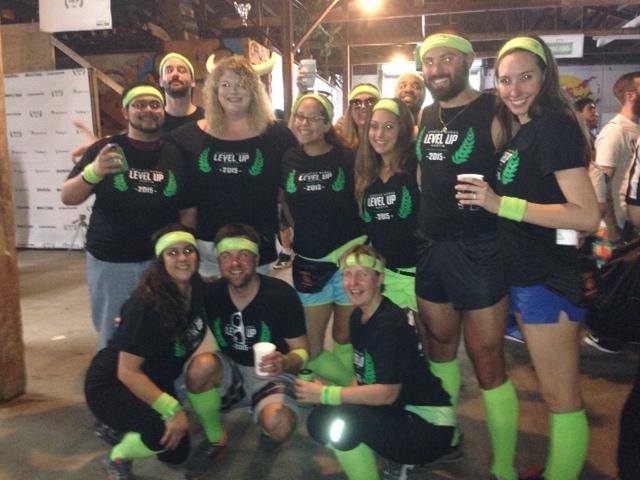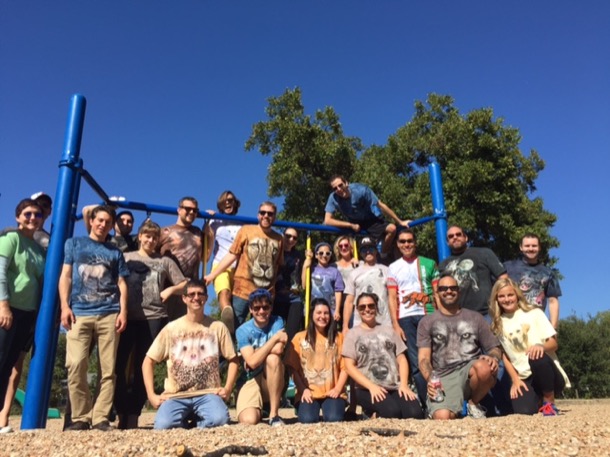 The ability to write a quality resume is a skill few job seekers ever totally master. Beside the basics of spellchecking and formatting, what actually goes into your resume (and how you execute its inclusion) is regularly contested.
The ability to write a quality resume is a skill few job seekers ever totally master. Beside the basics of spellchecking and formatting, what actually goes into your resume (and how you execute its inclusion) is regularly contested.
So, how can you land a job at a top Austin tech company when getting your foot in the door is left at the whim of a hiring manager or recruiter? Simple: find out what makes them tick.
We sat down with three Austin tech recruiters to hear their resume horror stories and their basic dos and don'ts when it comes to marketing yourself to a potential employer.

What are the most common mistakes you see people make on their resumes?
The absolute worst mistake is inaccurate contact information (wrong phone number, etc.). It happens.
What are some simple tricks people can use to better present themselves on their resume?
Most effective way to present yourself is to frame your role in terms objectives achieved/metrics. For example:
-
Quota attainment for sales reps quarter by quarter and where that ranks you within your team.
-
Efficiencies created in IT and scope of work environment (1000 work stations, multi-site, growth, etc.)
-
Accurate/clean code for developers and timelines for releases. Automation tools used.
-
Any recognition received for your work.
Bottom line....it's important to know not only what you achieved, but also the environment and timeline in which you achieved those objectives. Success in one environment doesn't necessarily equate to success in another environment.
I'm also looking to see an achievement pattern. If your greatest accomplishments were 5+ years ago I'm cautious to think you'll be a top performer now. I want to see continual growth and achievement. Focus more on recent achievements.

What are the most common mistakes you see people make on their resumes?
Spelling and grammatical errors are the most common mistakes I see on people's resumes. I also see lots of skills listed, but not a description of what was done with those skills.
What is the worst mistake you've seen someone make?
To falsify information on your resume. Everything must be true about you, or we will quickly sniff it out in an interview.
What are some simple tricks people can use to better present themselves on their resume?
Describe what resulted from your efforts and quantify it. If you solved a really hard problem, or presented a solution to something, what happened during implementation? How did it impact the customer or target population? This tells me what kind of impact you can make on my organization. Tweak your resume to fit the job description!! This helps me picture you in the job and what kind of an impact you can make in our organization. Also give me something interesting that you do OUTSIDE of work. That helps me separate you from other resumes and gives you a personality among a list of skills. It can also reinforce that you have a great work ethic, or are creative in your life outside of your job.

What are the most common mistakes you see people make on their resumes?
I have seen so many mistakes on resumes! I think the most common are misspellings and inconsistencies. Misspellings are a huge red flag, take the time to look over your resume and have a few friends look it over as well. There is nothing worse than rushing through writing it and having a sloppy spelling error.
When you're in recruiting, you really scrutinize a person's resume and the other mistakes that I commonly notice are inconsistencies. That can vary from ending your bullets with periods vs. not, to having inconsistent numerical naming (saying 1 or one), to even using too many different fonts!
What is the worst mistake you've seen someone make?
I've seen people spell their email address wrong or provide an incorrect phone number. If your contact information isn't right, it's tough for a recruiter or hiring manager to reach out to you.
What are some simple tricks people can use to better present themselves on their resume?
I know this is hard to hear, but remember that a recruiter or hiring manager does not spend 10 minutes reading over your resume. Keep it straight forward and to the point. Make sure that your bullet points are not fluffy statements with a lot of buzzwords. Do not include too many bullet points for each job, I would say 5 max. I know it's hard to feel like you can't put every single thing you've done on your resume but just remember that it's a jumping off point. You want a hiring manager or recruiter to read it and want to continue the conversation with you, not end it at after the first read.





